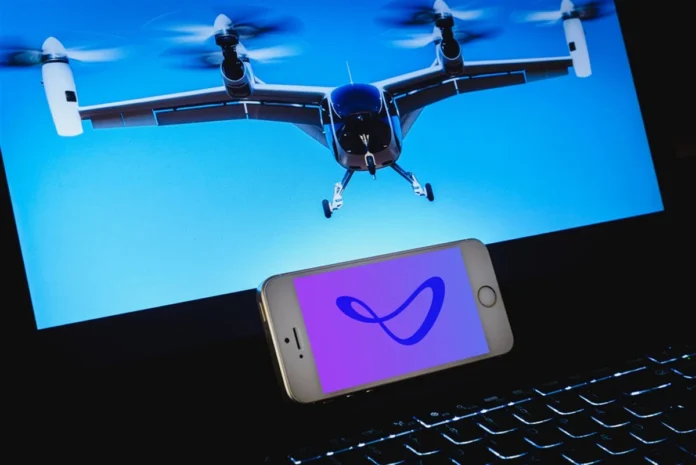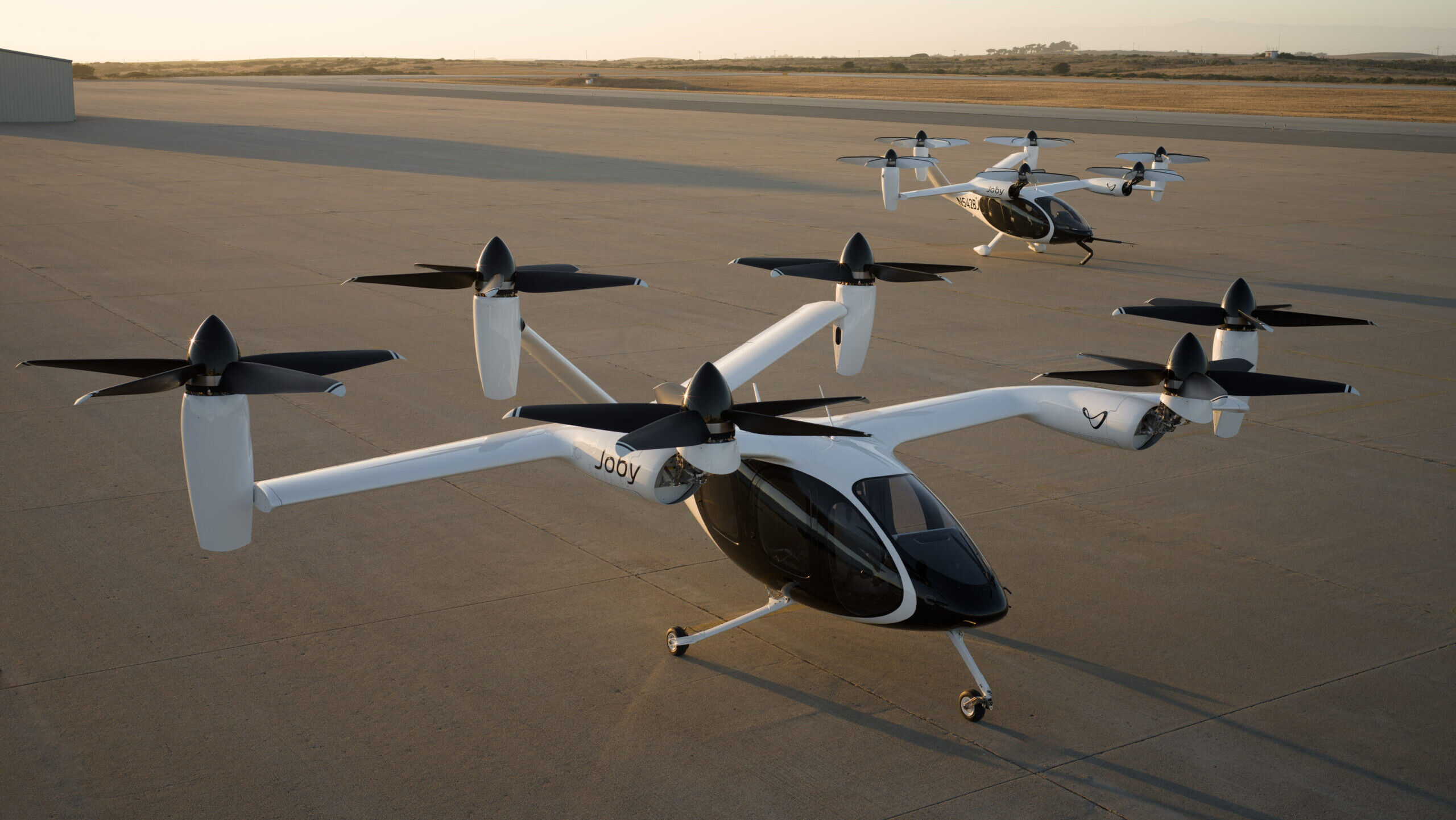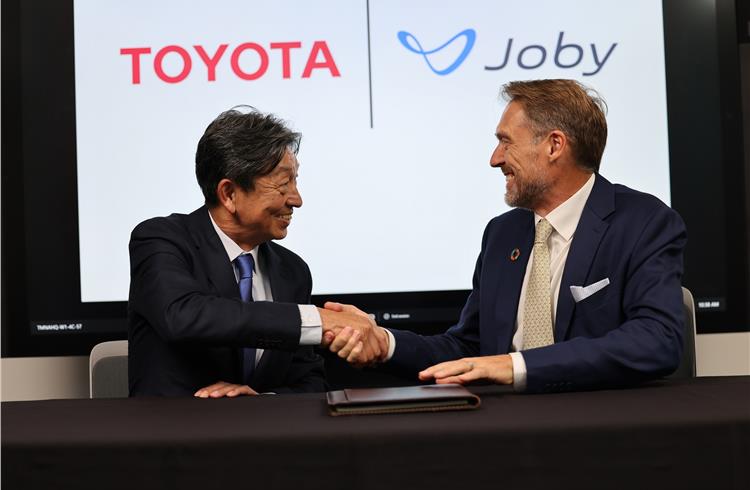
Toyota, the world’s largest automaker, has just made a bold move that could reshape the future of urban transportation as we know it. The company has announced a $500 million investment in Joby Aviation, a California-based startup known for developing electric air taxis. But while this move seems futuristic and exciting, many are left wondering: Is this a wise investment?
The race to develop urban air mobility solutions is heating up, and Toyota’s investment in Joby Aviation could give the automaker a serious edge in this emerging market. But will air taxis truly take off, or is this just another risky bet in the highly competitive world of future transportation technologies?

Why Is Toyota Betting on Air Taxis?
It’s no secret that Toyota has been aggressively expanding beyond traditional car manufacturing in recent years. With a keen interest in autonomous vehicles, electric mobility, and now air taxis, Toyota is clearly looking to future-proof its business.
The $500 million investment in Joby Aviation is Toyota’s largest push into the world of aerial mobility. But the big question remains: Why now?
Toyota sees air taxis as a potential solution to growing urban congestion. As cities around the world become more crowded, traditional road transportation is increasingly inefficient. Air taxis could offer a faster, cleaner way for people to move around dense urban environments. However, critics argue that air mobility still faces significant hurdles, including regulatory approval, safety concerns, and public acceptance.
So, is Toyota ahead of the curve, or is this investment a premature gamble in a space that may take years—or even decades—to fully mature?
Joby Aviation: The Company Behind the Hype
So, who exactly is Joby Aviation, and why is Toyota betting $500 million on them?
Founded in 2009, Joby Aviation is a pioneering company in the electric vertical takeoff and landing (eVTOL) space. In simple terms, they’re building electric flying taxis. Joby’s air taxis are designed to operate in urban environments, providing quick, on-demand flights without the hassle of traditional air travel.
Joby’s electric air taxis are battery-powered, making them environmentally friendly compared to traditional helicopters or planes. The company has already conducted numerous test flights and claims its air taxis will be capable of flying 150 miles on a single charge with speeds of up to 200 mph.
While the tech sounds impressive, it’s important to note that Joby Aviation has yet to fully commercialize its fleet. The question remains: Can Joby Aviation actually deliver on its promises, or will it become just another overhyped startup?

Is the Market Ready for Air Taxis?
It’s not just Toyota that’s banking on air taxis. Uber has been exploring urban air mobility with its Uber Elevate initiative, and Hyundai has also been working on its own air taxi concepts. Clearly, the tech industry believes that flying taxis could be the future of transportation.
However, just because major companies are investing in the concept doesn’t mean that the market is ready for it. Air taxis face enormous challenges, including:
- Regulation: Countries around the world still lack the regulatory frameworks to safely integrate air taxis into their airspace.
- Infrastructure: Building the necessary infrastructure—like landing pads and charging stations—will take time and significant investment.
- Public Acceptance: Many people are still skeptical about the idea of flying taxis, citing concerns about safety and privacy.
Can Toyota and Joby Aviation overcome these challenges? Or is this just another expensive experiment that could take years to yield results?
Toyota’s Strategy: A Long-Term Play or a Risky Gamble?
Toyota’s investment in Joby Aviation is not just about air taxis; it’s part of the company’s broader strategy to expand its portfolio in the realm of next-gen mobility. Over the past few years, Toyota has poured billions into areas like autonomous driving, electric vehicles, and mobility-as-a-service (MaaS). The question is, are they stretching themselves too thin?
Toyota’s core business remains automotive manufacturing, but with competition heating up from Tesla, Rivian, and other EV players, the company is clearly looking for ways to diversify. The investment in Joby Aviation could either position Toyota as a leader in the urban mobility revolution or turn into a costly mistake if air taxis fail to gain traction

What About the Competition?
Toyota isn’t the only company betting on air mobility. In addition to Uber Elevate and Hyundai, companies like Lilium and Volocopter are also racing to develop commercial air taxi services. These startups have already raised significant capital and are positioning themselves as early movers in the eVTOL space.
So, where does Toyota stand in this increasingly crowded field? With $500 million invested, Toyota certainly has the financial muscle to compete, but the competition is fierce, and Joby Aviation still needs to prove that its technology can be scaled.
The investment from Toyota could give Joby an edge in terms of manufacturing and global distribution, but it’s still unclear whether they’ll be able to beat out other companies that are equally determined to revolutionize urban air travel.
Can Air Taxis Truly Solve Urban Congestion?
One of the key selling points of air taxis is their potential to reduce traffic congestion in cities. But let’s not get too ahead of ourselves. While air mobility sounds like a futuristic solution, some urban planners argue that it could actually add to congestion—especially if too many air taxis are flying over densely populated areas.
There’s also the issue of cost. Initially, air taxis are expected to be priced at a premium, making them inaccessible to most people. If air taxis are only available to the wealthy, will they really solve the transportation crisis in our cities?
Conclusion: Is Toyota’s $500 Million Bet on Joby Aviation Worth It?
Toyota’s decision to invest $500 million in Joby Aviation is certainly bold, but it’s also fraught with risk. While air taxis have the potential to revolutionize urban mobility, the technology is still in its infancy, and there are significant regulatory and infrastructure hurdles to overcome.
The real question is whether Toyota’s bet on Joby Aviation will pay off in the long run, or if the automaker is getting ahead of itself. With so many challenges still to be addressed, only time will tell if urban air mobility becomes a reality—or remains a futuristic dream.
